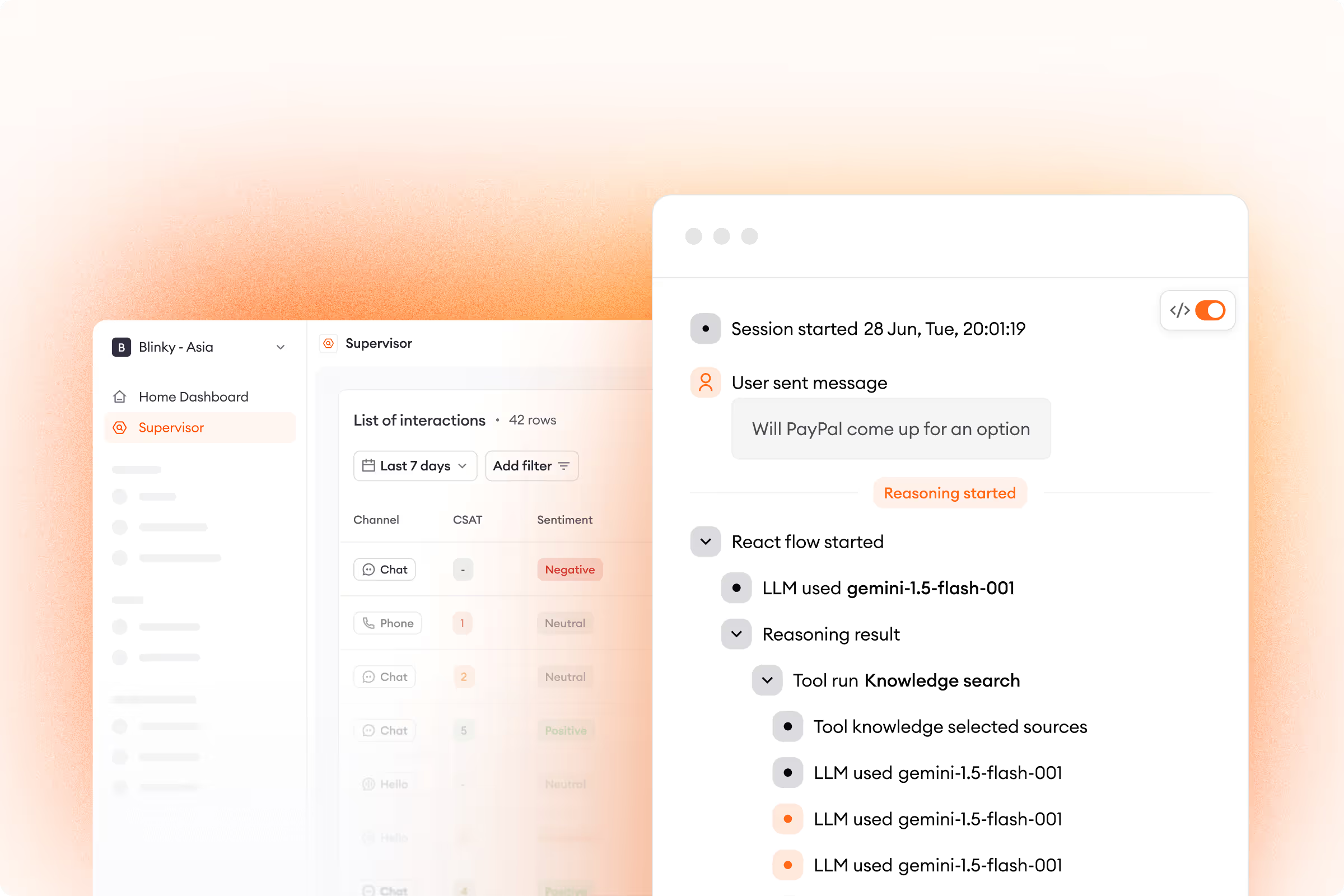Bad reviews are bad for business. But thanks to advances in AI in customer support, brands can take steps to address one of the biggest underlying causes of negative feedback — poor customer service. By harnessing the power of artificial intelligence and machine learning, companies can improve customer service interactions and minimize customer complaints.
In fact, AI Agents have been found to increase customer satisfaction (CSAT) by 12%, conversion rates by 15%, and average order value (AOV) by as much as 47%.
The best part? These solutions can be set up within hours, making it possible for brands to see transformative results within no time.
Let’s look at the cost of bad reviews for businesses, the link between poor customer service and business losses, and how AI in customer support can help brands avoid bad reviews altogether.
What do reviews matter?
Bad reviews can lead to serious consequences for brands, including a loss of sales and missed revenue opportunities.
1. Most consumers read online reviews before making a purchase. A 2021 study of 6,538 U.S. consumers shows 99.9% of us read reviews when shopping online at least some of the time.

2. Ratings and reviews are the most influential factor in determining purchase decisions. A 2023 study of 8,153 U.S. consumers found that 94% of consumers cite ratings and reviews as the #1 reason they decide to purchase something, more than the price of the product, the company’s policies, or referrals from friends or family.
3. Negative reviews influence consumers more than positive ones. That’s the power of negativity bias. Colorado State University researchers compared the effects of negative reviews versus positive reviews found that bad reviews have a stronger impact on consumers than positive ones.
4. Bad reviews could lead to fewer purchases. A 2023 study found that 89% of consumers say that negative reviews impact their purchasing decisions and about three in four say they won’t end up buying a product from a company after reading a negative review.
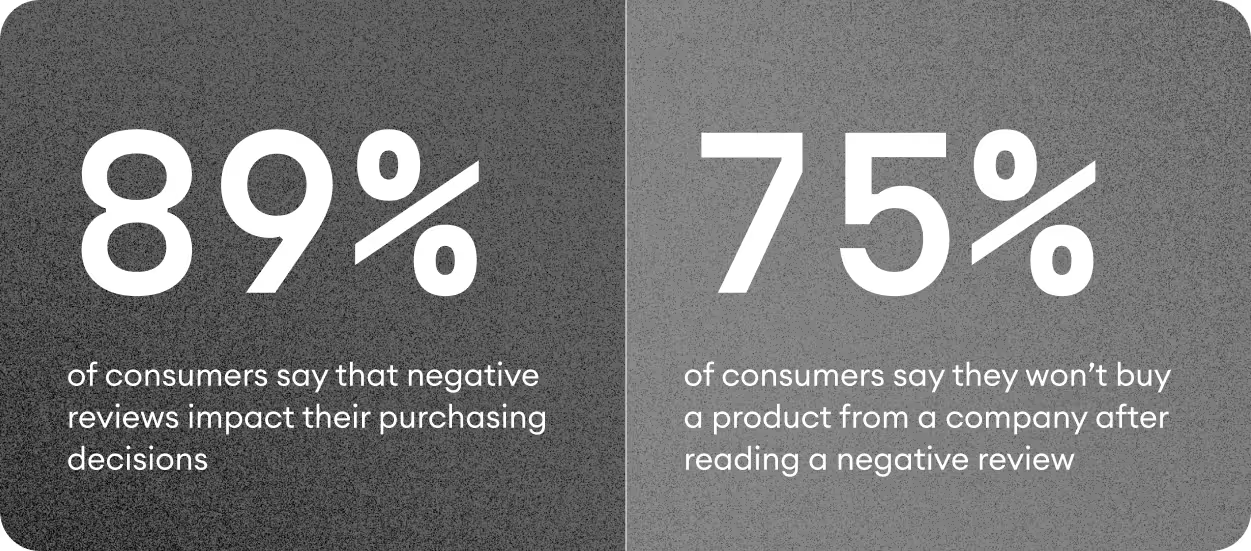
5. Brands with higher ratings have the potential to earn more revenue. An often-cited Harvard Business School analysis that looked at the influence of Yelp reviews on financial performance found that a one-star lift in a business’s ratings could lead to a 5 to 9% lift in revenue.
Are subpar customer support interactions resulting in bad reviews and lost business for your brand?
When it comes to customer service, each and every interaction matters. That’s because just one negative experience can add up to a loss of business — both a loss of the individual customer impacted by a bad customer service interaction and a loss of every potential customer they have the power to reach through negative word of mouth.
After all, roughly one in three consumers say they’ll stop doing business with a company they love after just one bad experience.
And the #1 reason customers complain about a brand is due to poor customer service. That's according to a 2023 study from PissedConsumer, a platform millions of consumers use to share feedback about companies and read online reviews. Similarly, the same study found that the #1 reason customers write public reviews is to warn other consumers about their experiences. Previous research has found that poor customer satisfaction can be harmful for brands’ reputations, with unhappy customers likely to tell up to nine to 15 people about their experiences. Online reviews amplify the reach of these consumers.
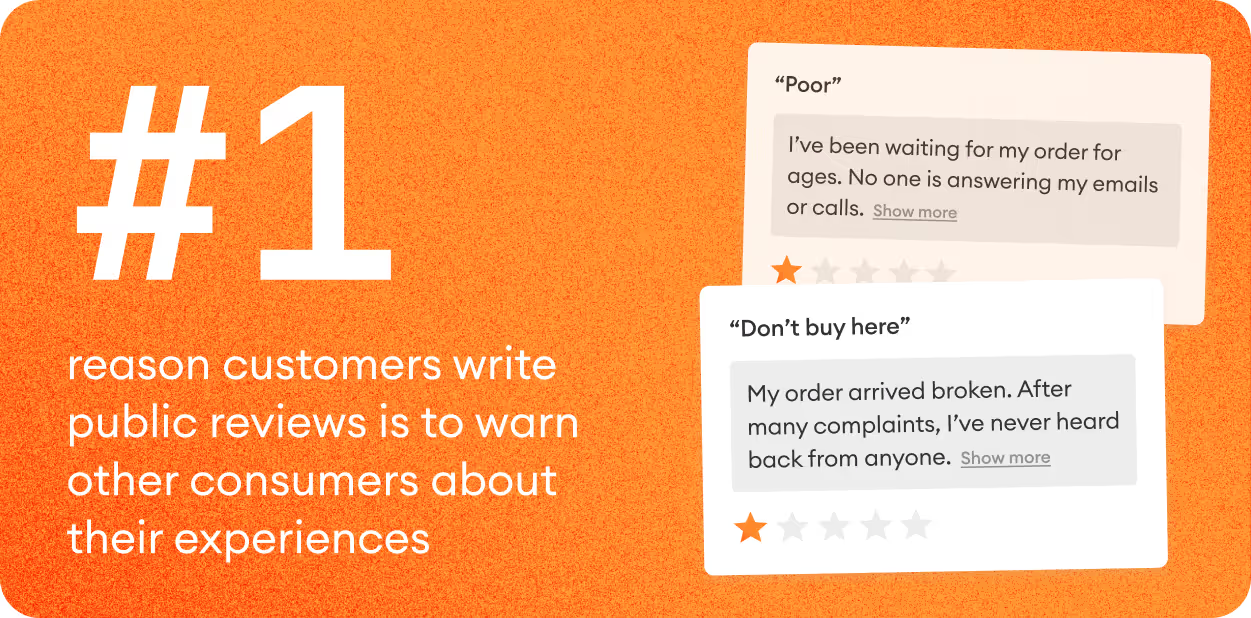
As discussed above, the ripple effects of negative reviews can be costly, with as many as 72% of consumers saying that when they see negative reviews about products or services they’re considering buying, they ultimately decide not to make a purchase.
The financial costs of bad customer service add up considerably over time: It’s estimated that companies lose between billions and trillions of dollars each year as a result of poor customer support.
How can you prevent bad reviews through AI in customer support?
With the #1 driver of customer complaints being poor customer service, it’s well worth brands’ effort to get to the root cause of underlying customer service issues. Especially given that negative experiences not only motivate existing customers to consider the competition, but also to write the kinds of negative reviews that turn prospective customers away.
Brands that are able to minimize friction during customer service interactions can improve the experience and avoid negative feedback and brand perceptions altogether.
The good news is, AI can help brands provide excellent customer service, without placing added burden on your customer support team.
Here are some of the ways savvy brands are using AI in customer support to deliver better experiences and keep bad reviews to a minimum.
- Offer 24/7 support
Because AI Agents can efficiently automate the process of handling and resolving 70%+ of customer queries, it’s possible to provide around-the-clock customer support outside of regular business hours without having to grow your customer service team or increase their workloads.
And as for issues that can’t be solved through automation, they can be routed to a human agent to handle when they’re back online, with all the important information conveniently summarized, reducing the time to resolution for customers and agents.
- Help customers in their preferred language
AI-powered solutions are able to leverage natural language processing (NLP) to understand and communicate in over 175 languages to enable enhanced support interactions for customers all over the globe.
- Solve customers’ issues faster
The best AI chatbots for customer service are designed to answer customers’ questions within seconds, by drawing upon information from your company’s FAQs and tech stack, macros your team sets up, and past customer conversations, reducing resolution times by 30%.
Use cases include answering questions such as when a customer’s package is expected to arrive, providing information about products, making product recommendations based on a user’s individual preferences, and intervening when issues arise by offering promo codes.
Because they’re capable of handling the workload of eight human agents, customer support chatbots make it possible to process more customer service inquiries in less time, without having to recruit, onboard, or train additional customer support agents.
- Communicate with empathy
Today’s most advanced chatbots take advantage of artificial intelligence and machine learning capabilities to communicate like a human. Not only that, they can be trained to:
- Understand your industry’s and customers’ particular needs, ensuring responses are aligned with customers’ goals and expectations
- Learn and embody your brand’s unique voice, tone, and messaging so that each interaction reflects your company’s values
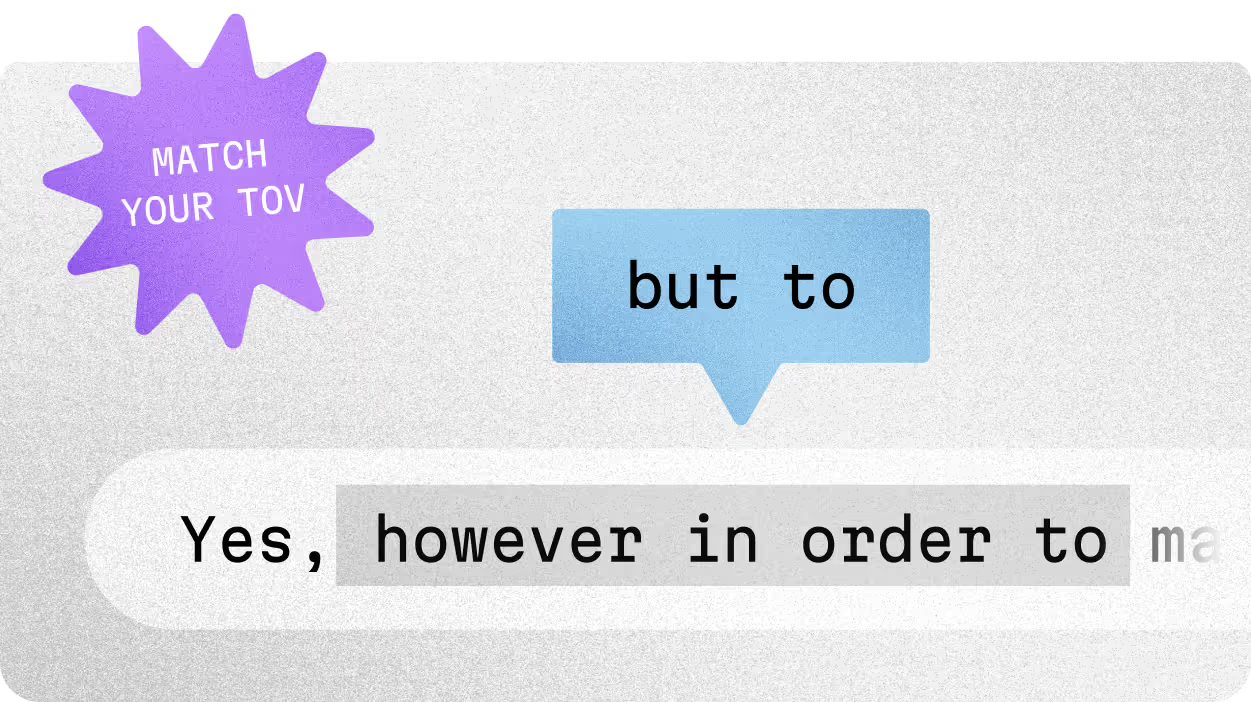
- Recognize customers and use relevant information to personalize the experience
AI Agents remember repeat customers and can build upon past interactions, leveraging customers’ data (names, demographic information, locations, past interactions and purchases, preferences, etc.) to tailor each conversation, deliver personalized responses at scale, provide seamless experiences, and ensure individuals feel valued and heard.
- Detect negative sentiment in the moment and act to intervene
Even when companies successfully use AI to address points of friction that arise during customer service interactions with a goal of increasing customer satisfaction, some customers may still be upset for a variety of reasons.
When that’s the case, it’s important that organizations have the tools to evaluate customer sentiment in real time to get to the root of any underlying problems and route sensitive interactions that can’t be automatically resolved with AI to a human agent to intervene and make things right for the customer, preventing any escalation, such as bad reviews.
- Find opportunities to provide stronger responses and experiences
Because NLP chatbots are trained to learn and get better at what they do over time, they can track response times, resolution rates, and CSAT scores to pinpoint opportunities for improvement in the customer service experience. They can also learn from customer interactions to suggest automated responses — beyond what you’ve set up in your FAQs and macros — that your team can then modify and strengthen.
Take advantage of AI to eliminate bad reviews today
With all of the advantages of AI in customer service, it’s no wonder that AI is expected to power 95% of customer interactions by 2025 and that over 80% of businesses are using some form of chatbot or virtual agent to upgrade their operations. Businesses that fail to take full advantage of the latest AI capabilities risk providing subpar experiences, alienating customers, earning bad reviews, damaging their brand reputations, and losing both existing customers and potential customers.
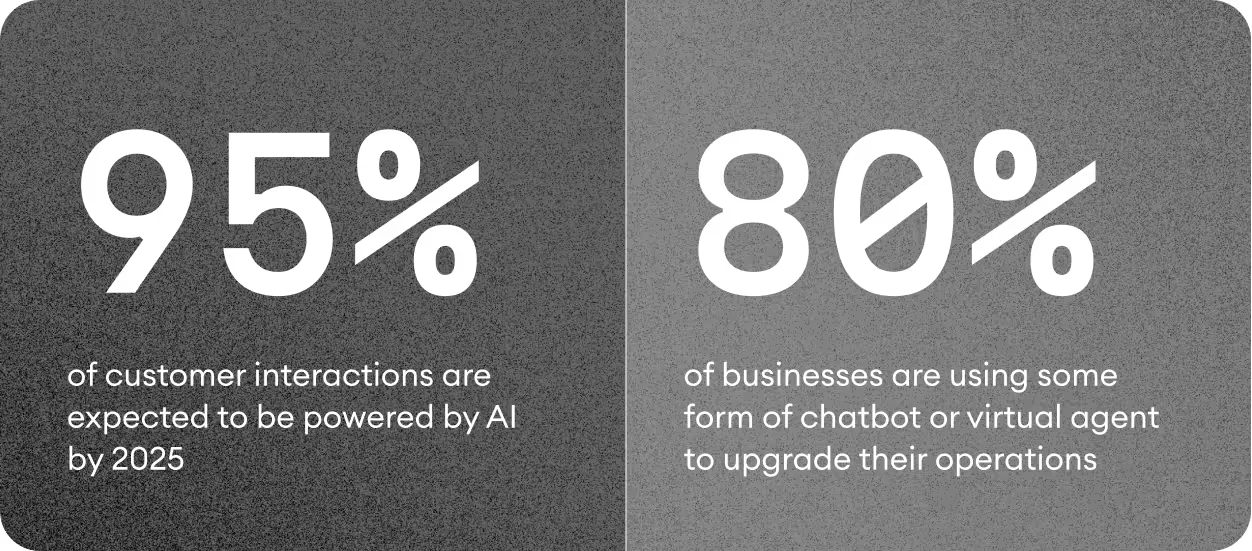
Savvy brands like True Classic are leveraging Zowie’s AI-powered customer support solutions to handle a high-volume of customer inquiries and gain visibility into underlying customer issues to boost revenue by $3M, reduce support costs by 38%, and improve CSAT scores by 16%.
To see what your team can accomplish with Zowie, book a demo with us today.
.avif)

.avif)
.svg)
.avif)

